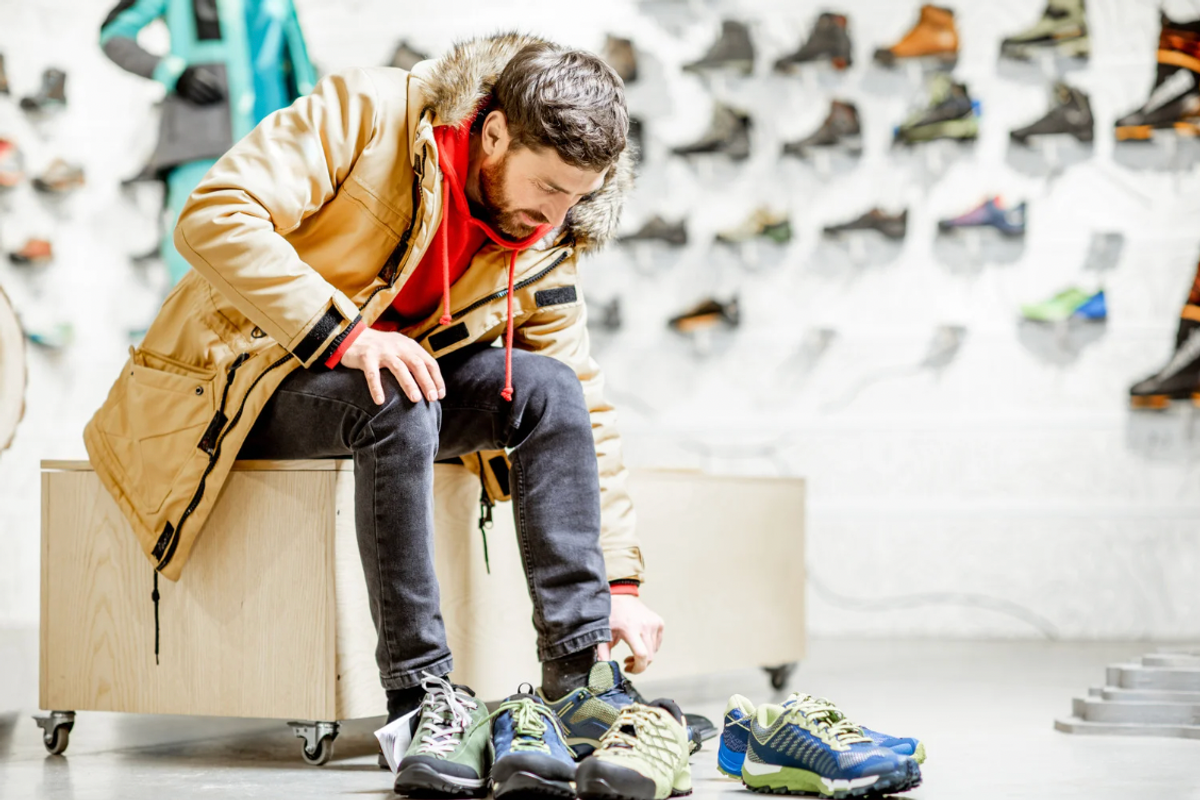A California mom saw Syrian refugees struggling to carry their babies, so she did something.
It's a positively heartbreaking situation: Syrian refugees are arriving in Greece by the boatload — quite literally. If they survive the first part of the journey, they can then face hundreds of miles of walking to reach their next destination.
If you watch the news footage, you may notice something:
There are lots of Syrian moms, dads, and caregivers with babies.
After crossing the Aegean Sea from Turkey, a Syrian couple holds their twin babies on the Greek island of Lesbos. Photo by Iakovos Hatzistavrou/AFP/Getty Images.
Babies too young to walk.
A Syrian mother, holding her one-month-old son after arriving in Lesbos from Turkey. Photo by Iakovos Hatzistavrou/AFP/Getty Images.
Babies that must be carried...
Remaining images in this article are via "Today."
...and carried. Despite cold and exhaustion.
California mom Cristal Logothetis noticed. After she saw the viral photo of the young Syrian boy who drowned as his family was trying to reach safety, she — like so many of us — was deeply moved.
"When I saw that picture, I didn't just see a little boy face-down on the sand," Logothetis told "Today." "I saw what could have been my son."
Logothetis and her son.
When we're so overwhelmed with emotion, it's easy to feel paralyzed. What can I possibly do in the face of so much tragedy?
So much! We can do so much.
Logothetis wasn't just moved emotionally; she was moved to do something. "It compelled me into action," she said. And action is what she took.
Logothetis started to collect baby carriers* to deliver to the Syrian families arriving in Greece with babies and young children.
*You know, those things we Americans like to use for convenience to keep our hands free or bonding with our babies, often referring to the practice as baby-wearing.
At first, she didn't think her plans would go very far. But she was wrong. So. Very. Wrong.
Tons of people were more than happy to help. In fact, they were honored to do so, with many attaching notes of encouragement and love to the donated carriers.
In addition to receiving donated carriers, Logothetis collected tens of thousands of dollars to purchase them.
After Logothetis had collected enough carriers to make a difference, she and 10 other moms headed to Greece.
There, they met families coming off boats and taught the moms and dads how to use the donated carriers.
One of the volunteers helping a family learn to use their new carrier. GIF by "Today."
Perhaps nearly as significant to the refugee families as the actual physical help is the simple knowledge that people care.
"All they're trying to do is get to a better place and protect their family," Logothetis said. "Not only do they have a problem solved for them by receiving a carrier, but they realize that people care about them, that people want to help."
One thing is for sure: A whole lot of people want to help.
"People out there, they really care. They do. They just need the right opportunity to get involved," Logothetis said. "If everybody does something, no matter how small or big, there will always be a positive impact on this planet."
It's easy to feel overwhelmed in moments of crisis. Sometimes, though, it's just a matter of looking in the right place.
As beloved TV personality Mister Rogers said: "Whenever there would be any catastrophe ... [my mom] would say, 'Always look for the helpers. There will always be helpers.' ... Because if you look for the helpers, you'll know that there's hope."
Well, we're looking at the helpers. And that means there's hope.
If you're interested in helping supply carriers for Syrian refugee families, you can visit the Carry the Future Facebook page to learn more about where to send your gently used carrier (or where to donate money).
And there are so many other easy ways to help! You can visit this page to find other organizations who are helping refugees and need support.
Watch the helpers from Carry the Future in this wonderful "Today" feature:



 Millennial mom struggles to organize her son's room.Image via Canva/fotostorm
Millennial mom struggles to organize her son's room.Image via Canva/fotostorm Boomer grandparents have a video call with grandkids.Image via Canva/Tima Miroshnichenko
Boomer grandparents have a video call with grandkids.Image via Canva/Tima Miroshnichenko

 Worried mother and children during the Great Depression era. Photo by Dorthea Lange via Library of Congress
Worried mother and children during the Great Depression era. Photo by Dorthea Lange via Library of Congress  A mother reflects with her children during the Great Depression. Photo by Dorthea Lange via Library of Congress
A mother reflects with her children during the Great Depression. Photo by Dorthea Lange via Library of Congress  Families on the move suffered enormous hardships during The Great Depression.Photo by Dorthea Lange via Library of Congress
Families on the move suffered enormous hardships during The Great Depression.Photo by Dorthea Lange via Library of Congress
 A couple cooking in the kitchen with a cat sitting on the table beside chopped ingredients.
A couple cooking in the kitchen with a cat sitting on the table beside chopped ingredients.